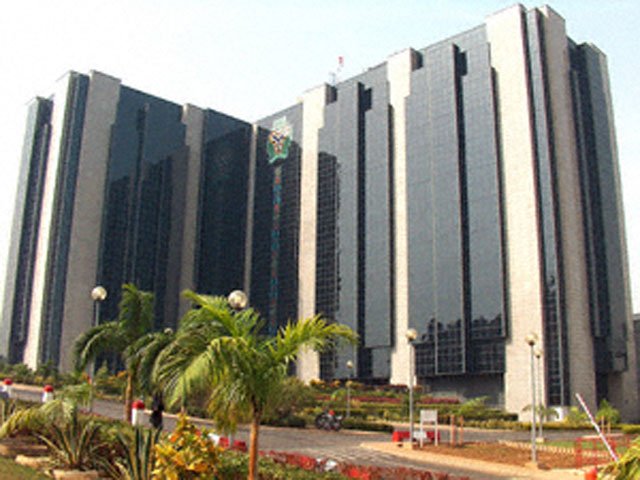• Forbids Nigerian Banks, Holdcos From Shareholding
Following an announcement of plans by the board of Ecobank Transnational Incorporated Plc to set up an asset management company to deal with its mountain of toxic debts for which it made N349.58bn provisions in 2015, 2016 and the first quarter of 2017, and the possibility that others may be thinking of such, the Central Bank of Nigeria (CBN) has published draft guidelines for the setting up of Private Asset Management Companies (PAMCs) in Nigeria.
Such companies, which must have a paid-up capital of N10bn would be licenced to buy eligible assets of banks and Other Financial Institutions (OFIs), which the guideline defines as “collateralized or secured non-performing loans of eligible financial institutions which are substandard, doubtful and lost in accordance with the Prudential Guideline, the Guidelines for Microfinance Banks and Primary Mortgage Banks, whether or not so classified by an eligible financial institution.”
A circular by the CBN, signed by Kevin Amugo, Director of Financial Policy and Regulation, referenced FPR/DIR/GEN/CIR/06/021, dated June 14, 2017 and titled “Exposure draft of the framework for licensing, regulation and supervision of private asset management companies of Nigeria,” said the guideline followed “developments in the nation’s banking industry.”
The guidelines also allows for individual and corporate shareholding, including foreigners, subject to CBN approval, while Nigerian banks, financial holding companies, OFIs and their subsidiaries are forbidden from investing in PAMC.
PAMCs are allowed a board size of between five and seven, including at least one independent director, while non-executive directors shall be more than executives at all times
“No board member or officer of a Nigerian bank, financial holding company and their subsidiaries shall serve on the board of a PAMC,” the draft guideline further stressed.
The PAMC, the CBN expects, would enable private institutions complement the role of the Asset Management Corporation of Nigeria (AMCON) in the task of detoxifying the financial system, by acquiring, managing, restructuring and disposing of such eligible assets.
They would, in the process, help the regulators promote the soundness and stability of Nigeria’s financial system, creating an alternative source of liquidity for banks and OFIs; while providing a platform for restructuring acquired such eligible bank assets.
While the PAMCs would be regulated and supervised by the CBN as an OFI, it would hold, manage, realize and dispose of eligible assets acquired from banks and the underlying collaterals associated with such assets.
The PAMC, according to the draft, is also allowed to “acquire performing bank loans, undertake debt factoring and subject to SEC (Securities & Exchange Commission) approval, engage in assets securitization; purchase or sell other receivables of banks and OFIs, including other assets; provide consultancy and advisory services to banks and OFIs for the purpose of restructuring receivables and other assets, including sale of such assets to third parties; (and) subject to SEC and other requisite regulatory approvals, issue or invest in securities.”
Subject to CBN approval, PAMCs can also own subsidiaries, purchase and sell eligible assets from other PAMCs, even as they are forbidden from providing credit to, accepting deposits from customers, providing guarantees for loans, or obtaining loans from banks and OFIs in Nigeria, among others.
The guideline also requires transparent and reasonable pricing and transfer of assets, which must be at arms-length, while the accounting entries for such transactions must fully comply with relevant standards, principles and guidelines.
Besides the N10bn paid-up capital, for a PAMC to obtain CBN licence, the promoters must provide a detailed feasibility study stating the objectives, detailed market survey, ownership structure/percentage stake as well as bio-data of each shareholder, five-year financial projection and proposed ICT infrastructure.
The promoters must also submit details of the proposed sources of equity contribution by each investors and “where a loan is obtained to finance the equity, such loan must be long-term (at least of 7-year tenor) and must not be taken from the Nigerian banking system and/or foreign subsidiaries of Nigerian banks.”
The guideline therefore means that ETI must ensure funding for its proposed PAMC is from outside Nigeria.
Announcing plans by ETI to set up Nigeria’s first private sector funded resolution vehicle, Ade Ayeyemi, ETI’s chief executive, had in a statement said such would “allow management to focus on delivering results. Our business philosophy was founded on international best practice in terms of accounting and asset quality, so whilst the impairment charge has impacted our earnings, our accounting treatment has been for the right reasons and we are in better shape for the future as a result.”








